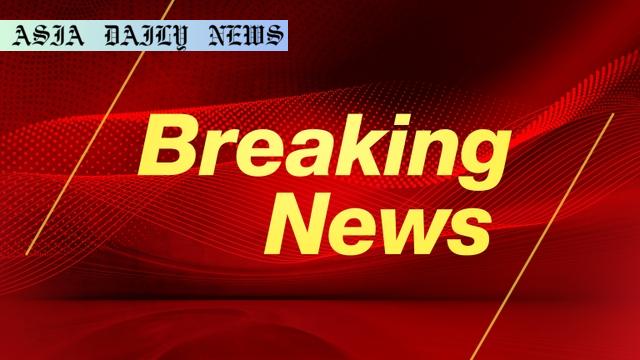Israel-Iran conflict: Israeli Defense Minister declares a state of emergency while explosions shake Tehran amidst rising tensions.
Key Point 1: Israel’s Defense Minister confirmed attacks on Iran, escalating regional tensions.
Key Point 2: Explosions were reported in Tehran early Friday with activated air defense systems.
Key Point 3: Israel declared a nationwide state of emergency following its actions.

Escalation in the Israel-Iran Conflict
On recent reports, the Israeli Defense Minister Israel Katz announced that Israel has conducted attacks on Iranian targets. This development further worsens the already volatile situation in the region. Alongside this announcement, a nationwide state of emergency was declared, signaling an intensification of preparedness for possible retaliatory measures from Iran. The unfolding events have sparked global condemnation and alarm, as nations observe the rising tensions between the two powerful Middle Eastern adversaries.
Iran, on the other hand, has confirmed via state television the occurrence of multiple explosions in its capital city, Tehran, around 3:30 a.m. local time. The broadcast also indicated that emergency air defense systems were activated immediately following the explosions. Although the cause of the blasts is yet to be verified, it strongly aligns with Israel’s announcement, hinting at targeted strikes against strategic Iranian assets.
These new developments represent a dangerous escalation in the long-standing feud between the two nations. The tensions, historically rooted in ideological and geopolitical differences, appear to be inching closer to open confrontation. The international community is urged to intervene, promote dialogue, and prevent further destabilization.
Potential Consequences and Regional Dynamics
The current situation carries significant implications not only for Israel and Iran but also for the broader Middle East. A military escalation could disrupt the regional balance, fostering spill-over conflicts in neighboring nations. Key players such as the United States, Russia, and China may step in to de-escalate, but their involvement could further complicate the situation given their vested interests in the region.
Civilian safety and economic stability are top concerns. Prolonged tension could lead to large-scale humanitarian crises, forcing mass migrations and creating refugee hotspots across nearby borders. Furthermore, disruptions in vital oil routes could impact global energy markets, pushing prices upward and affecting countries far beyond the immediate region.
The latest actions by Israel raise questions about the legal and ethical parameters of state conduct in international relations. Similarly, Iran’s potential measures in retaliation could lead to violations of international norms, dragging the conflict into unchartered territories.
The Path Forward
As the world watches, diplomatic resolutions must take precedence to prevent a widening of the conflict. Political advisers and veterans have suggested an immediate ceasefire so that neutral parties can mediate discussions. Declarations such as Israel’s state of emergency reflect a sentiment of readiness for worst-case scenarios but also exhibit a degree of deterrence. The coming weeks will prove critical in determining whether peace can be reconciled or if global actors will brace for conflict escalation.
Commentary
The Fragile State of Middle Eastern Diplomacy
The Israel-Iran conflict has resurfaced with alarming intensity, threatening the delicate balance of Middle Eastern diplomacy. The recent announcement by Israeli officials and confirmed reports from Iran highlight the volatile nature of their relationship. As these two influential nations engage in actions that could spiral into full-fledged warfare, world leaders must take proactive measures to mediate and restore stability.
The latest events are not isolated but are part of a broader narrative involving ideological rifts and geopolitical maneuvers. For years, Israel and Iran have been locked in a rivalry rooted in their differing political frameworks, religious ideologies, and strategic objectives. This reciprocity in blame and counterblame has often led to military posturing, with even minor incidents threatening to escalate into prolonged battles. Given this backdrop, the current developments demand immediate attention from the global community.
The Impact Beyond Borders
What makes this event particularly concerning is its potential ramifications. The Middle East has long been a hotspot for economic interdependence, especially in terms of oil resources. Any disruption caused by a large-scale conflict could lead to significant economic repercussions that ripple far beyond the region. Global oil markets could crash, creating chaos in countries dependent on energy imports.
Moreover, the humanitarian toll of such conflicts is profound. The possibility of civilian casualties, displacement, and refugee crises looms large. Neighboring nations that are already overburdened by wars in Syria, Yemen, and Iraq could find themselves grappling with an overwhelming influx of refugees. Globally, this crisis would test diplomatic ties and challenge international organizations like the United Nations to act swiftly and effectively.
Hoping for Dialogue Amidst Chaos
The importance of dialogue cannot be overstated. Both Israel and Iran must recognize the futility of prolonged hostility and embrace negotiation as the only path forward. Although their historical distrust makes dialogue difficult, stepping away from open conflict could lay the groundwork for mutual understanding. Similarly, external powers with stakes in the region must act as neutral arbitrators rather than taking sides and exacerbating the situation.
Ultimately, this crisis highlights the fragility of global peace and the need for stronger frameworks to handle such disputes. Let this serve as a compelling reminder that diplomacy, though challenging, remains the most sustainable solution for ending cycles of violence.


